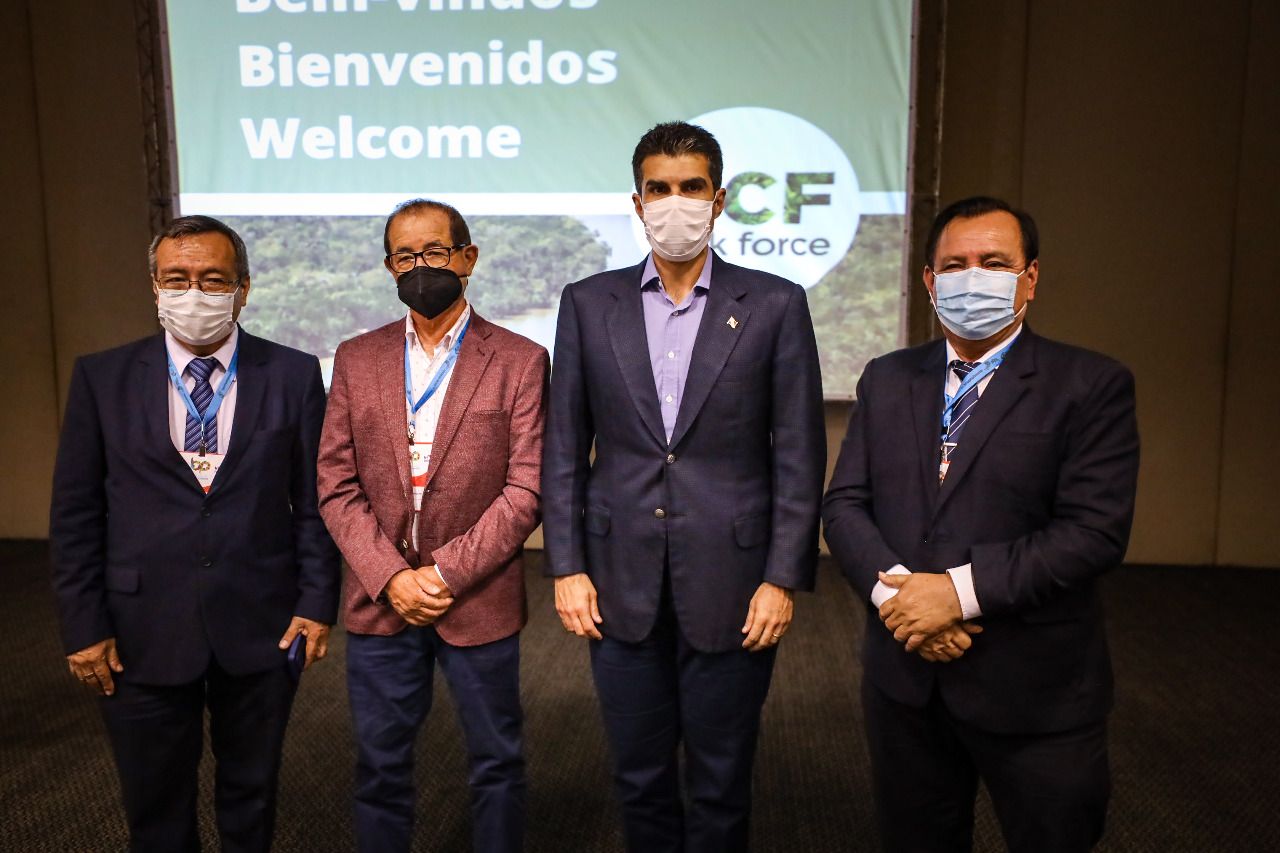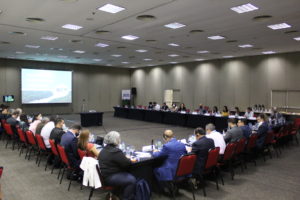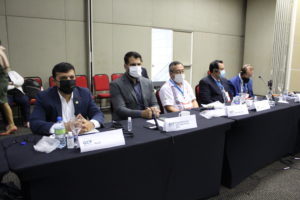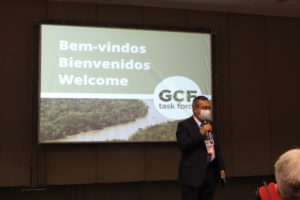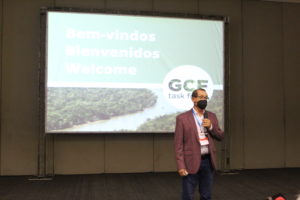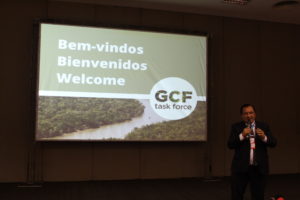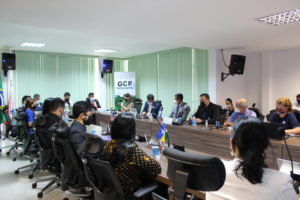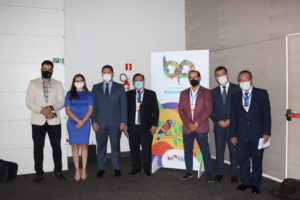The Governors’ Climate and Forest (GCF) Task Force hosted a Regional Meeting in Belém, Brazil with international governors and representatives hailing from Brazil, Perú, México, and California. The regional meeting took place in Belém to capitalize on the information exchanges extracted from the World BioEconomy Forum, where guests convened to promote bio-based solutions for a global, circular bioeconomy society at the mouth of the Amazon River. The GCF Task Force continued the movement with discussions on tropical forest conservation efforts through the lens of bioeconomy development, REDD+ and carbon markets, as well as other opportunities for subnational collaboration on tropical forest conservation.
Participants from various jurisdictions, NGOs, and the private sector networked and expounded on lessons, approaches, and experiences over the two-day meeting. The international attendees undertook major challenges such as confronting poverty and inequity while facing new pandemic impacts. “Where there is poverty there is more forest degradation. So our biggest challenge is to defeat poverty and defend the planet. Discovering how to profit from the intact forest is the biggest challenge of the contemporary capitalist world,” declared Mauro O’de Almeida – Secretary of the Environment of Pará in his opening statement.
Poverty was repeatedly highlighted by participants as one of the central points for deforestation, but strategies for how to conserve the forest while guaranteeing added value to the forest were shared and evaluated from multiple perspectives during the panels. The countries also presented new forms of innovation and technologies as well as advances in the implementation of sustainable production chains and decarbonization trajectories. The private sector was also recognized as a key actor for the conservation of the Amazon rainforest.
Production and the transition to a bioeconomy were also a focal point of the regional meeting. Attendees identified the need for solutions based on nature to create and maintain solutions already in the implementation phase as key elements to the formation of a stronger bioeconomy. Eduardo Taveira, Amazonas Environment Secretary counseled, “We need resources to stimulate green, restorative and inclusive change. Large-scale input of resources to generate wealth from forest conservation will be needed for the development and integration of projects that will bring green recovery, carbon reduction, and improved quality of life”.
The governors and representatives committed to advancing this work by strengthening environmental legislation, working with indigenous peoples to support them, engaging people in conservation initiatives, and stimulating financial flows. Plans that incorporate this vision were presented during this meeting with the acknowledgement that this work will require a union of key actors. The GCF Task Force will continue to collaborate and build upon the work being accomplished to establish greater opportunities for forest conservation that improves the lives of our communities.

